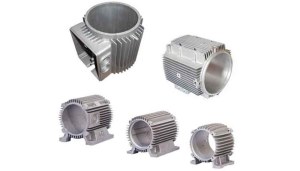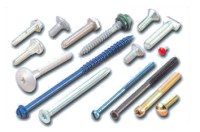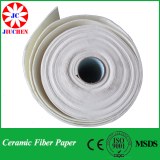Die Casting involves 3 key elements: the die casting machine, the mold, and the alloy materials, and the die casting could be described as the process of combining pressure, speed, and time to achieve an ideal cast metal part. The pressure applied during the casting process is a different feature from other casting methods. Typically the melted metal was filled into the mold with high pressure and speed, and solidification under pressure as well to form the casted part. Usually, the pressure applied during the casting process is over dozens of Mpa, with the meatal pouring speed of 16~80 m/s, the liquid metal only takes 0.01~0.02 seconds to fully fill the die cavity.
Low Pressure Die Casting
Die casting is a manufacturing process that metal is meltled in the furnace and then injected in the die casting machine to created the final part after cooling and solidified.
Vacuum Die Casting
Die casting is a manufacturing process that metal is meltled in the furnace and then injected in the die casting machine to created the final part after cooling and solidified.
Squeeze Die Casting
Die casting is a manufacturing process that metal is meltled in the furnace and then injected in the die casting machine to created the final part after cooling and solidified.
Semi-Solid Die Casting
Die casting is a manufacturing process that metal is meltled in the furnace and then injected in the die casting machine to created the final part after cooling and solidified.
What Is Die Casting?
High precision die casting is a casting method in which a liquid or semi-solid metal or alloy, or liquid metal or alloy containing an enhanced phase, which is filled into the cavity of a die casting mold at a high rate under high pressure, and the metal or alloy is solidified under pressure to form a casting. The pressure commonly used in die casting is 4~500MPa, and the die cast metal filling speed is 0.5-120m/s. Therefore, high pressure and high speed is the fundamental difference between die casting method and other casting methods and is also an important feature.
The principle of die casting is mainly the principle of pressure injection molding of the metal fluid. The die casting conditions are usually set by adjusting the speed and pressure on the die casting machine, as well as the switching position of the speed, and the rest is selected in the die casting mold line.
Characteristics Of The Die Casting Process
Die casting is a casting method in which molten alloy liquid is poured into a press chamber, filling the die casting mold cavity of a steel mold at high speed and causing the alloy liquid to solidify under pressure to form a die casting mold.
The main feature of die casting that distinguishes it from other casting methods is high pressure and high speed.
The die cast metal fluid is filled into the die casting mold cavity under pressure and crystallized and solidified under higher pressure, commonly 15-100MPa.
The die cast metal liquid fills the die casting mold cavity with high speed, usually at 10-50m/s. Some can also exceed 80m/s, (the linear speed of the cavity through the internal gate-internal gate speed), so the filling time of the die cast metal liquid is very short, about 0.01-0.2 seconds (depending on the size of the casting and difference) within. The die casting mold cavity can be filled within 0.01-0.2 seconds (depending on the size of the casting).
What Are The Advantages To Using Die Casting?
The die casting process has several obvious advantages such as high production efficiency, low operation skills requiring, high accuracy, and tolerance class for the finished product. As a result, a portion of raw material is saved and further machining process is not required either. Also, the die casting is able to produce detailed parts, which is a perfect option for the big amount of pieces production. So generally speaking, the die casting is considered to be efficient, economic, a broad range of shape capable, long life, versatile applied casting process. Especially for the aluminum and alloy die cast metal parts, it has been widely applied.
Why die casting is used
Due to the advantages of die casting, it is widely used, mainly in the mass production of non-ferrous alloy castings.
In the die casting production, accounting for the largest proportion is aluminum alloy die casting, which is 30% to 50%; followed by zinc alloy die casting; copper alloy die casting accounted for 1% to 2%. Application of die casting most is the automobile, tractor manufacturing, followed by instrument manufacturing and electronic instrument industry, and then agricultural machinery, defense industry, computer, medical equipment, and other manufacturing industries.
The parts produced by die casting mold are engine cylinder block, cylinder head, transmission case, engine cover, instrumentation and camera shell and bracket, pipe fittings, gears, etc.
In recent years, high technology has been applied to the field of the die casting mold. Such as the use of a three-stage injection mechanism to control the pressure, injection speed, and gas in the mold. The development of special die casting processes (such as vacuum die casting, directional pressure casting, oxygen die casting, etc.) and the application of computer control technology, effectively remove the pores, improve the density of the casting, while developing new die casting mold materials and heat treatment of new technology to extend the service life, so that the ferrous die casting metal has made some progress.
Rayforce Manufacture is a private foundry manufacturer, we provide metal casting china, vacuum die casting, aluminium casting defects and remedies pdf, cold chamber die casting process pdf and etc. Want to know types of gravity die casting or what is die casting in manufacturing process? Please contact us.
If you want to buy die casting, contact us.
Ubicación : No.1-101, building no.18, gate no.189, Nanneihuan street, Yinze district, Taiyuan city, Shanxi province, China, 030001 Yinze,
Persona a contactar : castings ray, 0351 4086352








